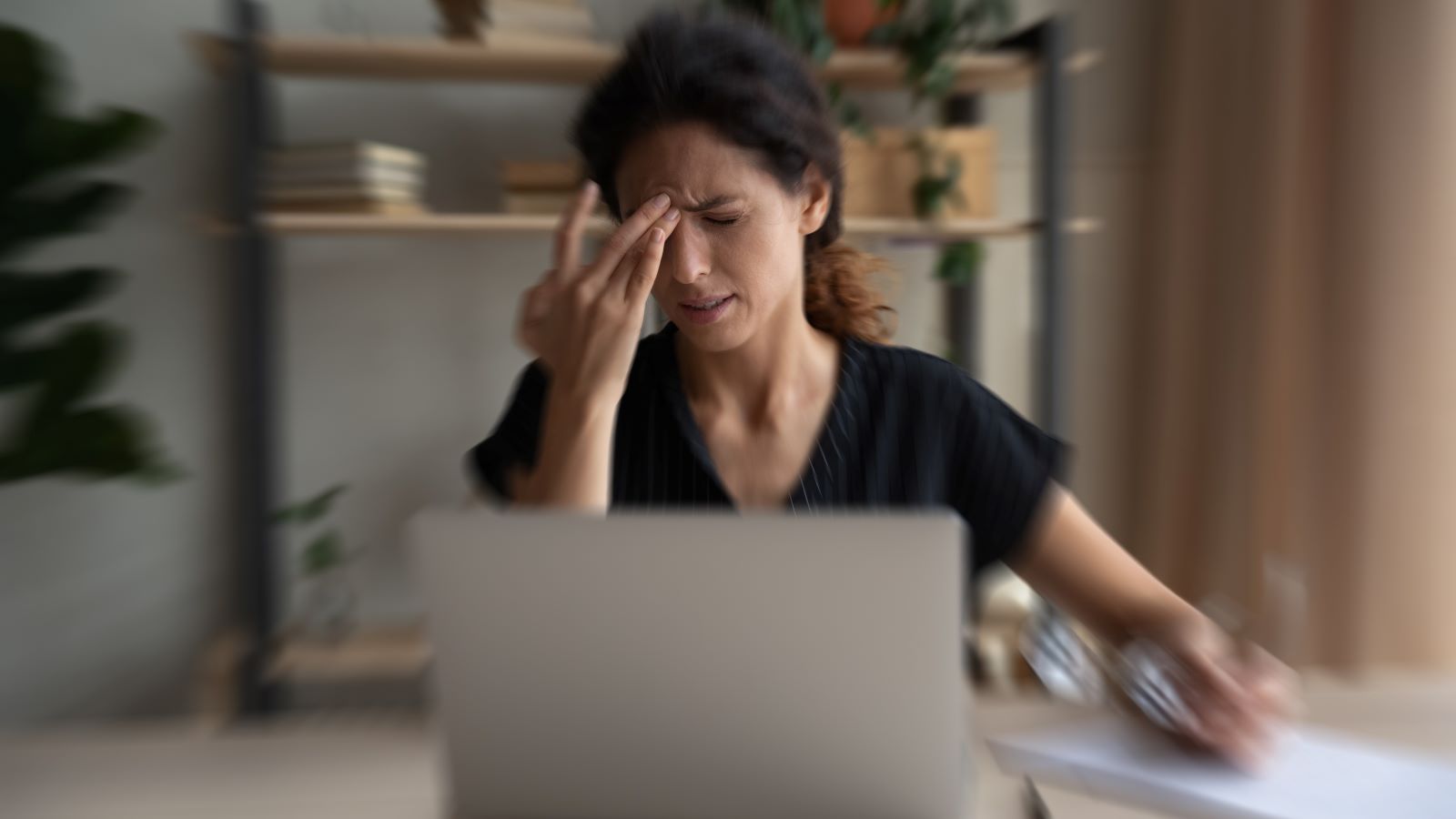<< Back
6 Early Symptoms of MS to Watch For

January 20, 2026
You know your body – and when something feels off, it’s worth paying attention.
That’s especially true with multiple sclerosis (MS), a chronic condition that affects the brain and spinal cord. Early signs and symptoms can be easy to miss or explain away – but the sooner MS is diagnosed, the more options you have to protect your health.
“MS can present in very different ways for different people,” says Mary Bailey, MD, a neuroimmunologist with the Hartford HealthCare Ayer Neuroscience Institute. “If we catch it early, we can often manage symptoms more effectively and preserve function long-term.”
What to know about MS
MS happens when the immune system attacks the protective covering around your nerves. This disrupts signals between the brain and body – leading to symptoms that may come and go, or gradually get worse over time.
No two people experience MS the same way. For some, it progresses slowly and has little impact on daily life. For others, it can lead to difficulty walking, muscle spasms or loss of function over time.
Here are six early signs of MS to watch for.
1. Numbness or tingling that doesn’t go away
Tingling or loss of sensation in the face, arms, legs or fingers can be an early symptom.
This can come and go at first, which makes it easy to brush off. But when numbness sticks around or keeps returning in the same area, it may signal a nerve issue rather than a circulation or posture problem.
“Numbness or tingling that doesn’t go away and you are unable relieve it by repositioning or shaking it out, can be a symptom of MS,” says Dr. Bailey.
> Related: 4 Things Women Should Know About MS
2. Blurry vision or eye pain
MS frequently affects the optic nerve, leading to blurred or darkening of vision – or to pain when moving the eyes.
Some people notice colors looking washed out or one eye feeling “off” compared to the other. These changes can happen suddenly and may improve over weeks, which can delay getting checked.
“Sudden changes in vision, especially if the change lasts 24 hours or more, should always be checked out,” says Dr. Bailey. “It can be one of the earliest signs of MS.”
3. Muscle weakness
You might notice heaviness in your legs, new clumsiness or difficulty walking with no clear cause.
This weakness often shows up on one side of the body or feels worse after activity. Tasks that once felt automatic — like climbing stairs or carrying groceries — may suddenly feel harder.
“Muscle weakness, especially if it affects your balance or walking, can be an early warning sign that we should talk about,” Dr. Bailey explains.
4. Fatigue that hits hard
This isn’t just tiredness – MS-related fatigue can feel overwhelming and unpredictable.
It may show up early in the day or hit without warning, making it difficult to work, focus or keep up with daily responsibilities. Heat and stress can make it worse.
“Fatigue from MS doesn’t always improve with rest,” says Dr. Bailey. “It can be one of the most challenging early symptoms.”
5. Balance or coordination issues
Feeling off balance? Tripping more often than usual?
You may feel unsteady when walking, struggle with fine motor tasks or feel dizzy when changing positions. These symptoms can increase the risk of falls if ignored.
“Balance problems or frequent falls, especially when combined with other symptoms, should kickstart a conversation with your doctor,” says Dr. Bailey.
> Related: 6 Common Myths About MS
6. Bladder changes
Urinary urgency or feeling that you need to go more frequently than you used to can show up early – and often get mistaken for something else.
These changes can disrupt sleep and daily routines, yet many people hesitate to mention them. Because nerves help control bladder function, issues here can be an important clue.
“Bladder or bowel changes without a clear cause could be linked to MS,” says Dr. Bailey. “Let’s get it checked out to see what’s going on.”
When to see your doctor
If something feels off and it’s not going away, don’t wait.
“MS can be tricky to diagnose, especially early on,” says Dr. Bailey. “But recognizing symptoms is the first step. If you’re noticing new or persistent changes, talk to your doctor – we’re here to help.”